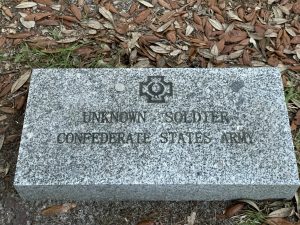Memorial Day Reflections
ø
Memorial Day
We honor fallen heroes
who served their country
Americans called to arms
some sacrificed for nothing
* * *
As the article linked below in the comments section articulates, “Memorial Day is a blank canvas, ours to commemorate in whatever way we see fit… Some will visit cemeteries, others will spend some time alone, and still others will take a moment amid a chaotic and happy day with family or friends to remember what today is. It doesn’t matter how we do it. It’s just important that we do it.” (1)
 I don’t care much about monuments. Throughout history and across cultures they rise and fall. Things change, and history is always a battlefield. I do, however, care about graves and honoring those who died for their country because soldiers, for both better and worse, do not usually fight for the grand ideologies shifting histories or dishonest historians might eventually ascribe to them.
I don’t care much about monuments. Throughout history and across cultures they rise and fall. Things change, and history is always a battlefield. I do, however, care about graves and honoring those who died for their country because soldiers, for both better and worse, do not usually fight for the grand ideologies shifting histories or dishonest historians might eventually ascribe to them.Most soldiers are pawns of war. Some were conscripted, many more mustered their courage to selflessly respond to the call of their country — or what they thought of as their country — based on noble perceptions of patriotism, sense of honor, duty to protect their home and others, etc. In the end, most soldiers fight and die not for a cause, but for each other, for their brothers in arms.
We should also take care with our memories of soldiers, for the winds of history shift.
Look at the rhetoric of our own time, with phrases such as “illegal wars,” “wars for oil,” “neo-colonialist interventions,” etc., frequently and mindlessly uttered by the ignorant, the politically exploitive, the grifters of history, cowardly misfits, and the chronically malcontent — may one day be used to tear down monuments and to soil the service and memory of those who served with honorable intentions in a host of American wars and conflicts (including Korea, Vietnam, Iraq, Afghanistan).
The most malicious and malignant among us, for example, would now have us taint our Revolutionary War soldiers as “fighting for slavery, etc.” when the historical record (including primary source diaries, letters and records) is clear that what they fought for was a country and a system that eventually overcame the horrors of slavery and other systems of bondage and indenture that so long profited its Old World founders.
Equally malicious and malignant, of course, are those who disrespect the service, pain, and sacrifice of our POWs.
America has many scars, but today it still stands proudly as the last flawed but capable defender of liberty and Enlightenment ideals in a dark and dangerous world.
Accordingly, we should take caution not to taint those who guard its walls and take care to honor the memories of those who fell doing their duty. Our fallen soldiers, veterans, and soldiers serving today literally provide the “safe space” in which dissent, change, and evolution toward a better country can take place.
I have no tolerance for “America first” types, because thousands of American soldier’s graves around the world prove that a mature America — an America at its best — overcomes the isolationism that helped preserve a nascent republic to fight and care for others. We have rebuilt other countries with our blood and treasure. Americans by their nature are not selfish and it is in the DNA of our people to fight for freedom, stand up to tyrants, and to — sometime eventually — do the right thing. We need not be bullies, but we should likewise not fail to stand with others in a just cause.
I have no respect for jingoists and “America right or wrong” types because nationalism should not be confused with patriotism (I plan a series of posts on this leading up to July 4th this year) and dissent can also be patriotic. I have little tolerance for those who equate a specific political party or ideology with patriotism, because patriotism can be manifest across a wide spectrum of ideologies. I have still less regard, however, for those who improperly tout — or deny — American exceptionalism because they simply show they do not intellectually understand what the term means.
Is right and proper to question wars, policies, and our flaws, and to protest same when in accord with one’s lights (soldiers died to defend that right), but I also have absolutely zero place in my life —and hold an intrinsic disdain — for those without pride in America. I think they are, at best, shallow souls ignorant of history, geopolitical realities, and the very real perils of this world.
Especially on Memorial Day, we must always remain careful to honor service and sacrifice for our country. It is never proper to disparage soldiers who served who honorable intentions. In fact, most soldiers, if at times begrudgingly, accord due regard to other soldiers who fought with honor (and that term is key) and equal courage as their enemies.
If you want a guide as to how to regard the soldiers of history, listen to the veterans of those conflicts. Listen also to how their recollections change over time, as they age, and the intimate horrors of the battlefield grew more distant. The weight of individual sacrifice and loss may diminish across generations, but within individual soldiers, it increases with time.
=============================================
(1) Amble, John. A REFLECTION ON HOW WE MARK MEMORIAL DAY. https://warontherocks.com/2022/05/a-reflection-on-how-we-mark-memorial-day/?__s=smvn2bg43063fmrsy53i
Photo: The grave of an unknown Confederate soldier, Confederate Rest Cemetery, Point Clear, Alabama. K. Lee Lerner. 2022


